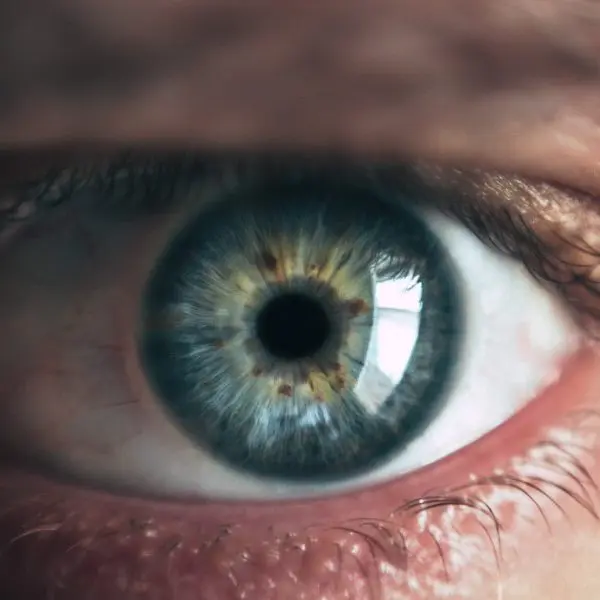
- Your Questions Answered

- News
Eye Floaters Treatment: What You Need to Know

If you’re seeing black or grey specks, squiggly lines, or floaters drifting across your vision, we can help with key information and a plan of action.
Eye floaters are usually harmless, age-related changes in the jelly-like vitreous humor, the clear gel filling your eye.
But sometimes, they’re a red flag.
If floaters appear with a sudden onset, flashes of light, or a shower of new floaters, it may signal more serious issues, such as posterior vitreous detachment, a retinal tear, or even a retinal detachment.
Contact one of our clinics immediately if this happens, as early treatment can prevent permanent vision loss.
What Causes Floaters and When Do They Signal Trouble
Most floaters begin when the vitreous humor shrinks and clumps, especially after age 50.
The jelly-like substance filling the eyeball behind the lens begins to liquefy and tug on your retina, creating shadows that appear as floaters.
This process, technically known as vitreous degeneration or posterior vitreous detachment, is common and usually harmless.
But it does carry a risk: as the vitreous separates, it can tug hard enough to cause a retinal tear.
That damage can then lead to a retinal detachment, an emergency that can lead to vision loss.
That’s why sudden new floaters, flashes of light, or a grey curtain over your peripheral vision deserve an immediate eye exam.
Treatment Paths for Floaters
In most cases, floaters don’t need any treatment, as many people learn to ignore them or the brain simply adapts.
However, for persistent floaters that noticeably affect vision or daily activities, Laser Vision offers a safe, minimally invasive option: YAG laser vitreolysis.
Clinical studies have shown YAG laser to be effective for the majority of patients, with side effects being rare.
You may notice minor symptoms such as a temporary rise in eye pressure or mild cataract spotting, but serious complications are uncommon.
Laser Vision also has expertise ready if a more advanced procedure becomes necessary.
While laser treatment is often enough to relieve symptoms, a small number of patients may need a vitrectomy.
This more involved surgery can remove floaters entirely but is only recommended in rare cases where laser vitreolysis hasn’t resolved the issue.
Throughout your care journey, Laser Vision emphasises safety and monitoring.
Our experienced ophthalmologists perform thorough eye exams, checking for changes such as raised pressure or early cataracts following treatment.
Many studies have shown significant improvements in symptoms after laser vitreolysis, with no delayed retinal issues reported in their long-term follow-up studies.
That level of care and follow-up helps ensure laser treatment is confidently both safe and effective.
The Importance of Regular Eye Exams and Risk Awareness
Regular eye exams are your best defence when it comes to spotting floaters and flashes early, especially if you’re over 50, have high blood pressure, diabetes, nearsightedness, or have had eye surgery. A family history of this issue may also be a factor.
During a pupil-dilated eye exam, your eye specialist can spot retinal tears or detachments before they become full-blown emergencies.
If you’re experiencing new floaters or flashes of light, please don’t hesitate to contact us.
Even if floaters are benign, keeping an eye on them helps ensure nothing serious is missed.
Can You Prevent or Reduce Eye Floaters?
Sadly, you can’t prevent the age-related changes in the vitreous humor that cause most floaters.
You can, however, look after your eyes by maintaining a healthy lifestyle, including a balanced diet, regular exercise, controlling blood pressure and blood sugar levels, avoiding smoking, and protecting your eyes from injury.
Many of these steps, of course, are part of the general approach to good health.
They help reduce risk factors like diabetes, inflammation, or trauma, which can contribute to floaters or retinal problems.
Regular check-ups with an ophthalmologist or optometrist, ideally once a year, become even more critical as you age or your vision changes.
Managing Everyday Floaters and When to Take Action
Most of the time, floaters don’t interfere with your daily routine.
Looking at a blue sky, a white wall, or a computer screen helps bring them into view, but over time, they fade into the background.
If a flare-up happens, though, and floaters suddenly multiply or block vision in one eye, treat it as an emergency.
This may involve laser therapy or even surgery in rare cases, particularly when vision problems develop.
But the key is early detection through eye exams, awareness of symptoms, and prompt action.
With today’s range of diagnostic tools and treatments available at Laser Vision, even potentially serious causes like retinal tears or detachment can be resolved successfully before they affect long-term vision.
World-Class Treatment at Laser Vision
If you are looking for expert private eye care, you’re in good hands.
Laser Vision operates two outstanding eye clinics in Hampshire, including the flagship Prema Clinic in Portsmouth, widely regarded as one of the UK’s finest facilities for eye surgery and vision correction.
We also run a second Hampshire eye clinic at Spire Portsmouth Hospital, offering exceptional care from some of the UK’s most respected ophthalmologists.
Whether you’re looking for life-changing laser eye surgery, need support managing a condition, or want to explore your options, we’re here to help.
You can book a consultation online or call the team on 0800 024 8888 to speak with an eye expert.
Reviews








